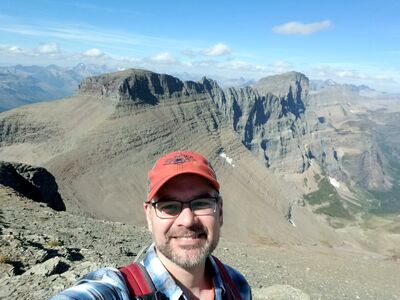Milky Way with Jupiter and Saturn
Dec 11, 2020 14:20:41 #
Dec 11, 2020 14:54:01 #
tomad
Loc: North Carolina
Excellent! The only thing I don't like about my Sony RX10 IV is that I can't get shots like that. I have tried and the small sensor generates just too much noise for the ISO required.
Dec 11, 2020 15:15:08 #
Dec 11, 2020 15:19:06 #
OneShot1 wrote:
The Milky Way with Jupiter and Saturn (above left of tree), tonight about 7PM CST. Taken at Lake Afton, near Goddard, KS (but looking west, away from the lake). Single 25 second exposure, contrast and color boosted (like Hubble photos).



Dec 11, 2020 15:38:43 #
Dec 11, 2020 17:37:38 #
Dec 11, 2020 19:29:03 #
Dec 11, 2020 19:57:11 #
Dec 11, 2020 20:18:03 #
dwmoar
Loc: Oregon, Willamette Valley
OneShot1 wrote:
The Milky Way with Jupiter and Saturn (above left of tree), tonight about 7PM CST. Taken at Lake Afton, near Goddard, KS (but looking west, away from the lake). Single 25 second exposure, contrast and color boosted (like Hubble photos).
How do you manage to take such a long exposure and not have star movement. Heck I take a shot of 2 second and there are trails
Dec 11, 2020 22:08:07 #
Great work on this one, OneShot.
--Bob
--Bob
OneShot1 wrote:
The Milky Way with Jupiter and Saturn (above left of tree), tonight about 7PM CST. Taken at Lake Afton, near Goddard, KS (but looking west, away from the lake). Single 25 second exposure, contrast and color boosted (like Hubble photos).
Dec 11, 2020 23:58:24 #
Dec 12, 2020 08:01:04 #
Dec 12, 2020 10:44:28 #
dwmoar wrote:
How do you manage to take such a long exposure and not have star movement. Heck I take a shot of 2 second and there are trails
The length of the exposure is dependent on focal length of the lens. A wide angle lens (14mm) can have a longer exposure than a standard lens (50mm). There are a bunch of higher math formulas to figure out the arc second movement on you pixel size sensor. Someone came up with a simple math to figure out the maximum length of exposure. That is known as the 500 rule. Take your lens focal length and divide it into 500 and that is approximately the maximum length of exposure to avoid any perceptible star trails. Example: 14mm lens divided into 500 gives you 35.7. This means that the longest exposure you could use is 35 seconds with a 14mm lens. This is based on full frame sensor. You have to adjust for other sensor size. The smaller the sensor, the shorter the exposure. Sorry, I don't know what those adjustments would be. Happy shooting. PS. have a mug of hot chocolate with you on those cold night shots.
Dec 12, 2020 11:08:59 #
dwmoar
Loc: Oregon, Willamette Valley
ORpilot wrote:
The length of the exposure is dependent on focal l... (show quote)
Thank you for the information. I was unaware of it. I never have done much if any nighttime sky photography. I will indeed give it a try now. Again thank you for your explanation.
Dec 12, 2020 17:03:51 #
OneShot1
Loc: Wichita, KS, USA
Even with a 14mm lens, when I zoom in on the original, the stars are slightly smeared, not pinpoints. I try to stick with 25 seconds to minimize the trail. Thanks for looking!
If you want to reply, then register here. Registration is free and your account is created instantly, so you can post right away.







